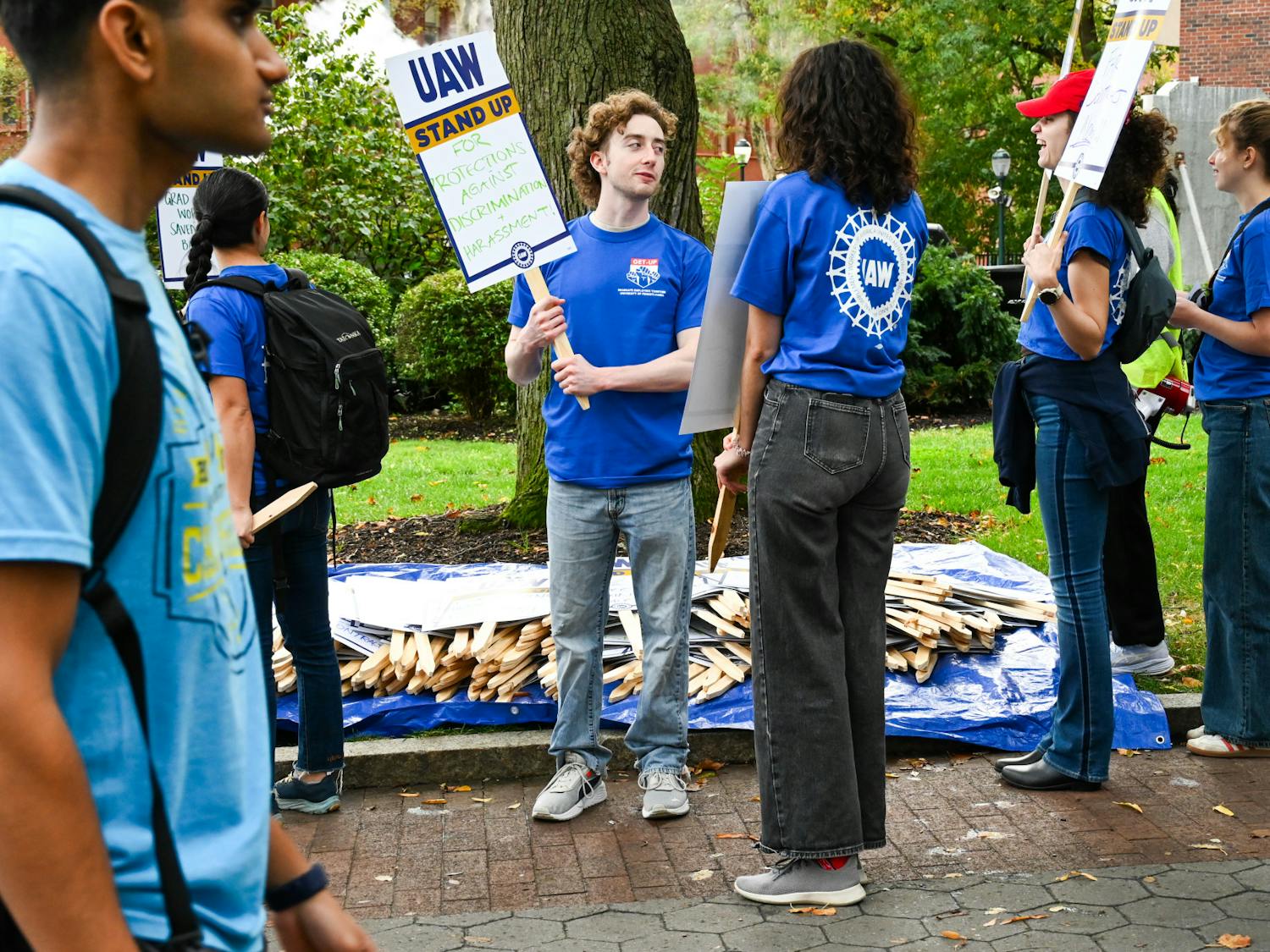Tomorrow, Joseph McGinn Sr., president of McGinn Security Services, will find out whether or not the University has decided to terminate his firm's contract. And after a month of silence, McGinn finally agreed yesterday to tell his side of the story on the record. Last month, The Daily Pennsylvanian reported that five McGinn guards were found asleep on the job during a two-hour period on the "graveyard shift" one night. As a result, acting Vice-Provost Valarie Swain-Cade McCoullum and Residential Living Director Gigi Simeone notified McGinn on March 18 that the University was considering termination of its agreement with the firm. On March 17, the night the DP ran photographs of the sleeping guards, McGinn said guard posts at all the residence halls were visited four or five times by a supervisor. "By the rules, we were all doing our job, but yet we were still having problems, and it is perplexing the heck out of me," McGinn said. After the DP report ran, McGinn consulted with a sleep disorder expert at the Hospital of the University of Pennsylvania in order to determine what causes guards to sleep. Richard Schwab, clinical director of the Penn Center for Sleep Disorders, concluded in his final report that "it is extremely difficult to completely prevent shift workers from occasionally falling asleep during the midnight shift." "Now we know it is a universal problem," McGinn said. " I thought it was a McGinn problem." Schwab said McGinn's policy of not allowing security guards to drink or eat at their guard posts increased the chances of falling asleep on the job. According to McGinn, the policy was implemented by the Department of Residential Living, adding that his guards were merely following it. The policy's original intent, Simeone said, was actually to make sure guards were alert and concentrating on their work. "Our goal was that people look professional and not engage in things that could distract them or give the appearance that they are not concentrating," she said. McGinn said Schwab's report served as an "enlightenment" since it provided him and the University suggestions on how to reduce the instances of guards sleeping on the job. Guards are now allowed and encouraged to drink caffeinated beverages and eat snack food if they become drowsy. McGinn said guards are also allowed to listen to the radio for added stimulation during hours where there is little interaction with people. "It was unrealistic to operate under the work rules that were implemented," he said. McGinn said he would have no objections if the University decides to amend its contract with the firm to include specific guidelines for guard performance. Since the latest DP report about sleeping guards, McGinn said he has worked to rearrange shifts for guards who have shown difficulty staying awake on the late shift. Guards are also called every 15 minutes between 2:30 a.m. and 7 a.m. to make sure they are alert, he said. McCoullum met with McGinn yesterday morning, and McGinn said he asked that his firm be judged by his overall performance over the last seven years. "There has never been an incident that resulted in any harm to any student because of lack of performance of a McGinn guard," he said.
The Daily Pennsylvanian is an independent, student-run newspaper. Please consider making a donation to support the coverage that shapes the University. Your generosity ensures a future of strong journalism at Penn.
Donate







